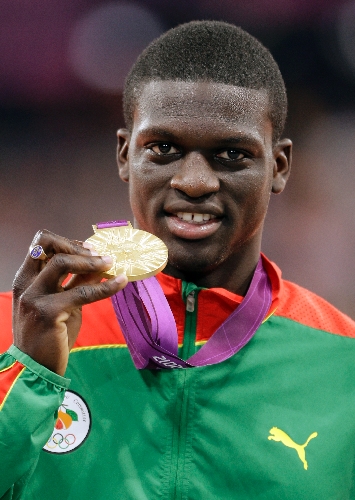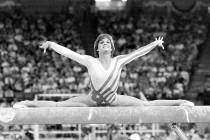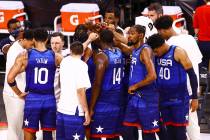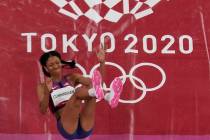Red, white and blue is golden as U.S. finishes first in Olympic medals
LONDON - Most medals, most gold medals. The U.S. got what it wanted from these Olympics.
So did Britain, riding the wave of home-field advantage for its best Olympic showing in over a century. Some of that may have come at the expense of China, which finished only five medals ahead of Russia, where the Winter Olympics are next, in 2014.
The competition is over. The U.S. was best - but the success stories from London truly spanned the globe.
"I think these games were absolutely fabulous," International Olympic Committee president Jacques Rogge said.
The final numbers: 104 medals for the United States, 46 of them gold, their highest total at a "road" Olympics. China won 87 medals, 38 of them gold, down from what they did as the home team in 2008. Britain won 29 golds, third-most of any nation, and 65 overall - fourth in that category behind Russia, a winner of 82 medals, 24 gold.
Grenada had its first gold medalist, and six other nations sent athletes to the Olympic podium for the first time. Meanwhile, Australia took another step back in its Olympic free fall after a scintillating show in Sydney 12 years ago.
In all, 85 nations won something in London, from the U.S. to Tajikistan and dozens of points in between.
"We are immensely proud of the success that our athletes had in London," U.S. Olympic Committee CEO Scott Blackmun said Sunday.
With good reason.
Red, white and blue was everywhere in London over the last two-plus weeks, waved proudly and often.
And remember, that's not just the color scheme of the U.S. flag, but the Union Jack of the British, too. The hosts delivered on a promise of greatness in 2012 - and possibly set the stage for continued success.
"What I've witnessed in the last couple of weeks has been both uplifting and energizing," London Games chief Sebastian Coe said. "I don't think any country that has staged the games or any city that staged the games is ever the same afterwards."
Neither are the athletes who win them. A boxer from Thailand protested losing a gold-medal fight to a Chinese opponent, and shed tears of disbelief when the decision was announced. He cried again 10 minutes later, holding his silver medal for the first time.
"I'm happy. I'm still really happy that I've got this silver medal," said the Thai fighter, Kaeo Pongprayoon. "I'm really proud. It might not be gold, but it's a medal I can bring back to the Thai people."
The U.S., well, they brought a whole slew of hardware back to the American people. The 46 golds in London were one more than the gold haul from Paris in 1924 and Mexico City in 1968.
LeBron James recognized that winning gold means more than, well, winning gold. He and the U.S. men's basketball team won the Americans' final Olympic title in London on Sunday afternoon.
"It means more than myself, it means more than my name on my back," James said. "It means everything to the name on the front."
The final numbers for the Americans in London won't go down as record-setting for all Olympics.
They won 83 golds (174 overall) at the 1984 Los Angeles Games, boycotted by most of the Soviet bloc countries; and 78 golds (a whopping 239 overall) at the 1904 St. Louis Games, when U.S. athletes won roughly seven out of every eight medals.
Different eras, different dynamics. By any measure, 2012 will be considered a booming success for the U.S. Many thought the Chinese would go home with more medals than the Americans, and that didn't come close to happening.
"We're Americans and we're human," said Teresa Edwards, the five-time Olympian for U.S. basketball. "When I was competing, when I went up against another country, I felt they wanted the same thing I wanted. But we were given an opportunity to prove it at that moment, and that's what these games give us."
Celebrations weren't limited to the big nations - Grenada's first Olympic gold came from Kirani James winning the men's 400-meter dash.
But Australia's medal total, seven, was just half of the number from Beijing - and the Aussies won no individual gold medals in the swimming pool for the first time since 1976, something that would have seemed unthinkable a few years ago when the likes of Ian Thorpe were among the world's very best.
The Summer Olympics next hit Brazil, site of the 2016 Rio de Janeiro Games.
They have some work to do over the next four years, in addition to all the construction that comes with getting ready for sport's largest spectacle. The Brazilians won three golds in London, those coming in women's volleyball, judo and gymnastics, and their overall medal haul of 17 was its best at an Olympics.




























